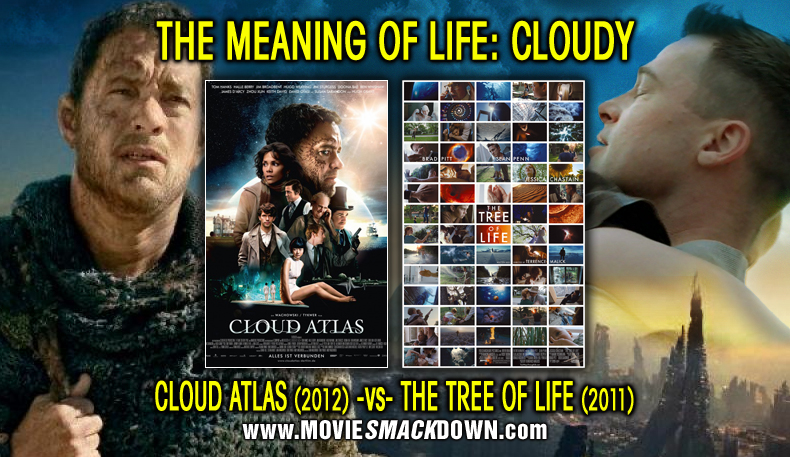
The Smackdown
We at the Smack like a sprawling, epic movie about Big Themes as much as anyone else. So in this edition we’re throwing two big, brainy behemoths against each other in a ring-shaking Sumo contest.
In the challenger’s corner, weighing in at a few thousand pounds and nearly three hours in length, is a film so big it needed three credited directors: Cloud Atlas, essentially six movies in one, covering a range of genres, time periods and motifs. Our reigning champ is The Tree of Life, a thick, mood piece by Terrence Malick about a middle-aged man’s reflections on his upbringing and relationship with a tough, unhappy father. And, oh yeah, the origins of life and nature while we’re at it.
This is going to be a big and important contest, ladies and gentlemen. No less than the meaning of existence and humanity’s place in the world is at stake here. The ultimate question is, naturally, a two-parter: Is it possible to address such topics effectively onscreen, and if so, which of our contenders does it best?
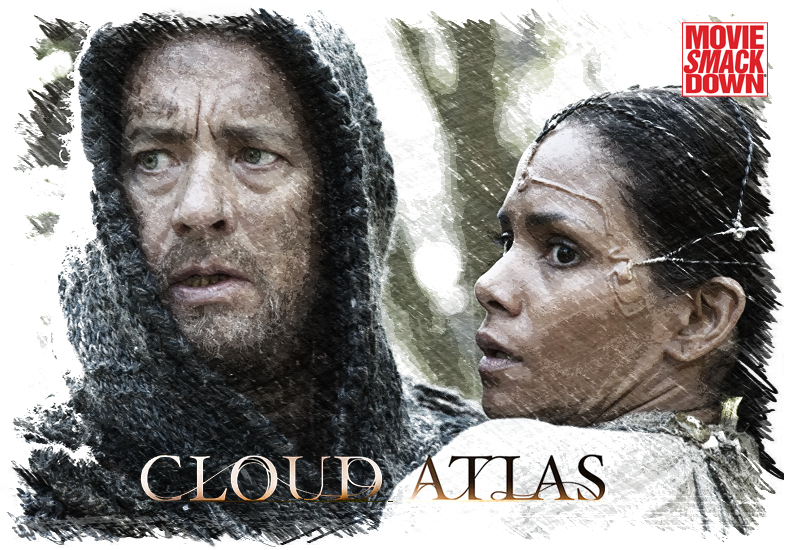 The Challenger
The Challenger
Say this for Cloud Atlas — in terms of content, it really provides value for your ticket dollar. A full half-dozen, sort-of linked stories are unspooled for our viewing pleasure. We cross-cut between 1) various corners of the Pacific Ocean circa 1849, as a young lawyer (Jim Sturgess) is preyed upon by a quack doctor (Tom Hanks), who’s trying to poison him so he can take the lawyer’s money and treasure; 2) pre-World War II Britain, with a scheming and ambitious songwriter (Ben Whishaw) worming himself into the household of a famous composer (Jim Broadbent) in order to coat-tail to fame and riches; 3) 1973 San Francisco, where a crusading reporter (Halle Berry) digs for dirt on the activities of a local nuclear power plant; 4) Present-day England and a hapless publisher (Broadbent again), who goes on the run from gangsters but ends up incarcerated in a prison-like old folks’ home where escape is seemingly impossible; 5) “Neo-Seoul,†Korea sometime in the future, with a human clone used as a servant (Doona Bae), connecting with an underground political movement and discovering freedom; and 6) Hawaii, sometime further in the future, with a tribesman (Hanks, once more) struggling to keep his family alive in a Darwinian post-apocalyptic society while wondering what might lie atop that big mountain everyone in the tribe is afraid to venture to.
The movie is adapted from the popular book of the same name by David Mitchell, and its three screenwriter-directors include, fittingly, The Matrix creators Andy and Lana (formerly Larry) Wachowski, who handle the stories that are more distant from the present time, while Run, Lola, Run helmer Tom Tykwer directs the more contemporary tales. In order not to have a cast list that reads as long as the Bible, a manageable set of actors takes the main roles in each story.
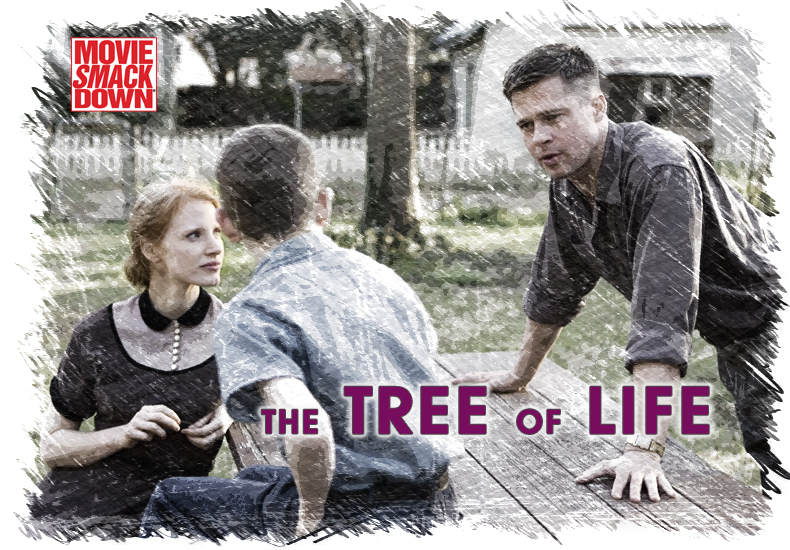 The Defending Champion
The Defending Champion
The character at the roots of The Tree of Life, architect Jack O’Brien (Sean Penn) is a troubled man, despite his apparent outward success. He doesn’t seem able to come to grips with his past, when he grew up in a suburban Texas household run by a stern, semi-abusive father (Brad Pitt). Compounding that was the passivity of his mother (Jessica Chastain) and the death of one of his two brothers. Adult Jack weaves in and out of memories of his boyhood days, which very often consist of him getting into trouble for stupid little-kid stunts, angering his touchy dad with yet another minor infraction, or a bad combination of both. In these fragments of reminiscence, we see glimpses of why Dad’s always so irate; he’s a guy who once dreamed of becoming a great musician or inventor, but ended up settling for a much more typical and limited existence.
This is a small story that essentially takes place in the lead character’s brain, but writer/director Terrence Malick links it to Grand Themes. Interspersed among all the interspersing are scenes of powerful forces creating life – a human being conceived, volcanoes erupting, dinosaurs romping the prehistoric earth. Considering this kind of scope, Jack’s concerns seem relatively minor; maybe he can realize this at some level and start to overcome his troubled memories.
The Scorecard
The makers of both films try to reach their lofty goals by different means. Cloud Atlas goes for the traditional Expensive Movie approach, with huge set pieces, whiz-bang cinematography/visual effects and, despite the incessant cross-cutting between tales, generally conventional storytelling. This results in a very good-looking film that’s easy to follow in spite of its breadth. As far as the stories are concerned, though, Tykwer/Wachowskis err on the side of exposition, taking a little too much time to unspool the six rather straightforward plots. This results in a draggy effort and an audience that ends up thinking yes, we should have bought the extra-large size coffee.
The Tree of Life is no fast-paced sitcom, but since it comes at us in a fragmented, non-linear way without much exposition at all, it’s more interesting to watch. Almost nothing is spoon-fed to the viewer, leaving it up to us to discover the sources of Jack’s discontent. It’s a daring and unusual approach for a film in such wide release and featuring name talent. Although the conceit doesn’t always work, since Malick as per habit tends to ramble visually – do we need so many sequences showing the kids chasing each other on the lawn, for instance? – this sideways approach is more distinctive and memorable.
Cloud Atlas, for all its vaulting ambition and sprawl, ultimately feels like a Hollywood movie. The themes explored are simplistic and preachy – slavery is bad! Freedom is humanity’s only hope! Don’t steal! Thank you, Doctor Obvious. We can get the same messages pounded into us by many, many lesser films, most of which don’t require three hours of our time to absorb. Peering through the murky doings of The Tree of Life reveals a fairly simplistic message… or at least it seems to, since Malick loves to wallow in a vague, arty haze; get over your hang-ups because they’re trivial compared to the immensity and wonder of existence. Well, duh. It’s a movie that’s not as deep as its maker thinks it is, but at least, compared to Cloud Atlas, it’s fresh and it takes chances.
The Decision
We have to credit the Wachowski siblings, Tykwer and Malick for attempting to make entertainments that explore big themes difficult to stuff into the cramped space of a feature film. Both Cloud Atlas and The Tree of Life have ambition to spare and elements to admire but ultimately neither succeeds all that brilliantly in what it wants to do. One, however, edges out the other on style and for being a little more unconventional in trying to gain victory in our bout. That winner on points is The Tree of Life.

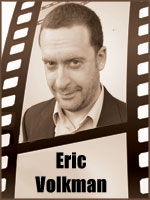



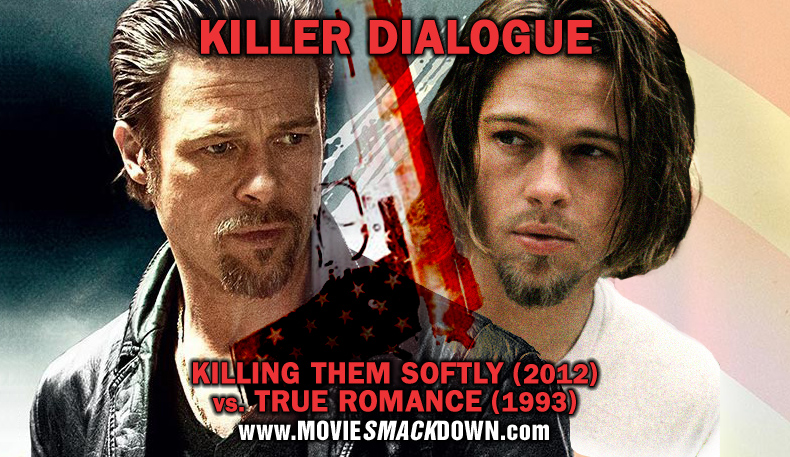
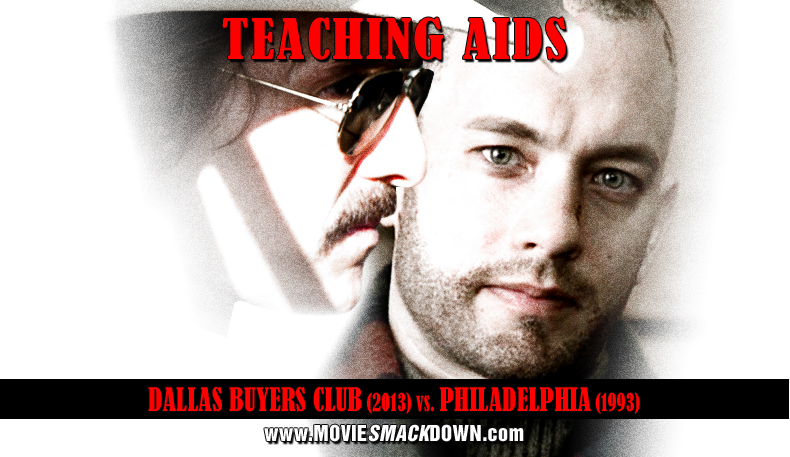
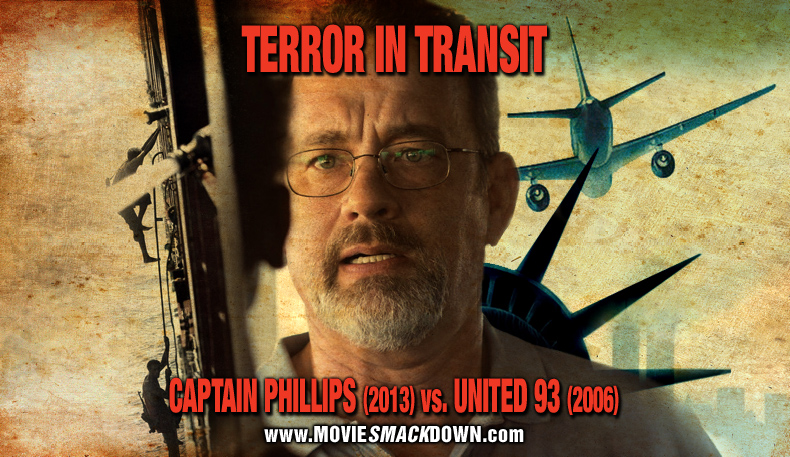
Dude, Cloud Atlas incredibly deep, with metaphors, references, and all that stuff everywhere.
Cloud Atlas may be obvious to you and to me, and to lots of other drops in the ocean, but not to the vast majority of the common folk.
Lots of people left the theater without making heads or tails of it.
People still “ewww” at two guys kissing, and it is the greatest majority.
Reincarnation, in which, BTW, I believe, is the glue that sticks the whole story together. If you don’t get it, or believe it, you don’t get any of it. And it is not only a Buddhist doctrine,it is a Spiritualist belief. Investigate Alan Kardec’s work.
People who, during life, had to transgress in anyway, will understand.The great majority of people do go through life like zombies, unaware of sense of purpose.
The metaphors are unbelievable. A good example is the two guys at the china store.Too bad that the idiom (bull in a china store) will be missed by the non english speaking audiences, like other nuances, to make matters worse.
No dear friends, these stories and messages are NOT obvious to the illiterate and ignorant masses. Take a closer look.
Knowledge is a mirror.
Tree of Life was better.
Cloud Atlas is a Buddhist version of the same, it’s a poor imitation IMHO.
I would say it is more Kardecist than Buddist.
I haven’t seen Cloud Atlas, but having seen Tree of Life I can safely say anything is better than it was.
It’s not that bad. It’s different, at least, and it tries to go deep, unlike the shallow-as-a-swimming-pool CLOUD ATLAS.
I have kinda high hopes for Cloud Matrix, but I couldn’t make it through all of Tree of Life. Could be a weird three hours. Maybe I’ll get a nap.
CLOUD ATLAS is pretty to look at, yes, but for the full three hours you’ll either need lots of caffeine and sugar, or a willing partner who can keep prodding you awake. Good luck, and be careful out there.
Ha! I just accidentally called it CLOUD MATRIX (above).